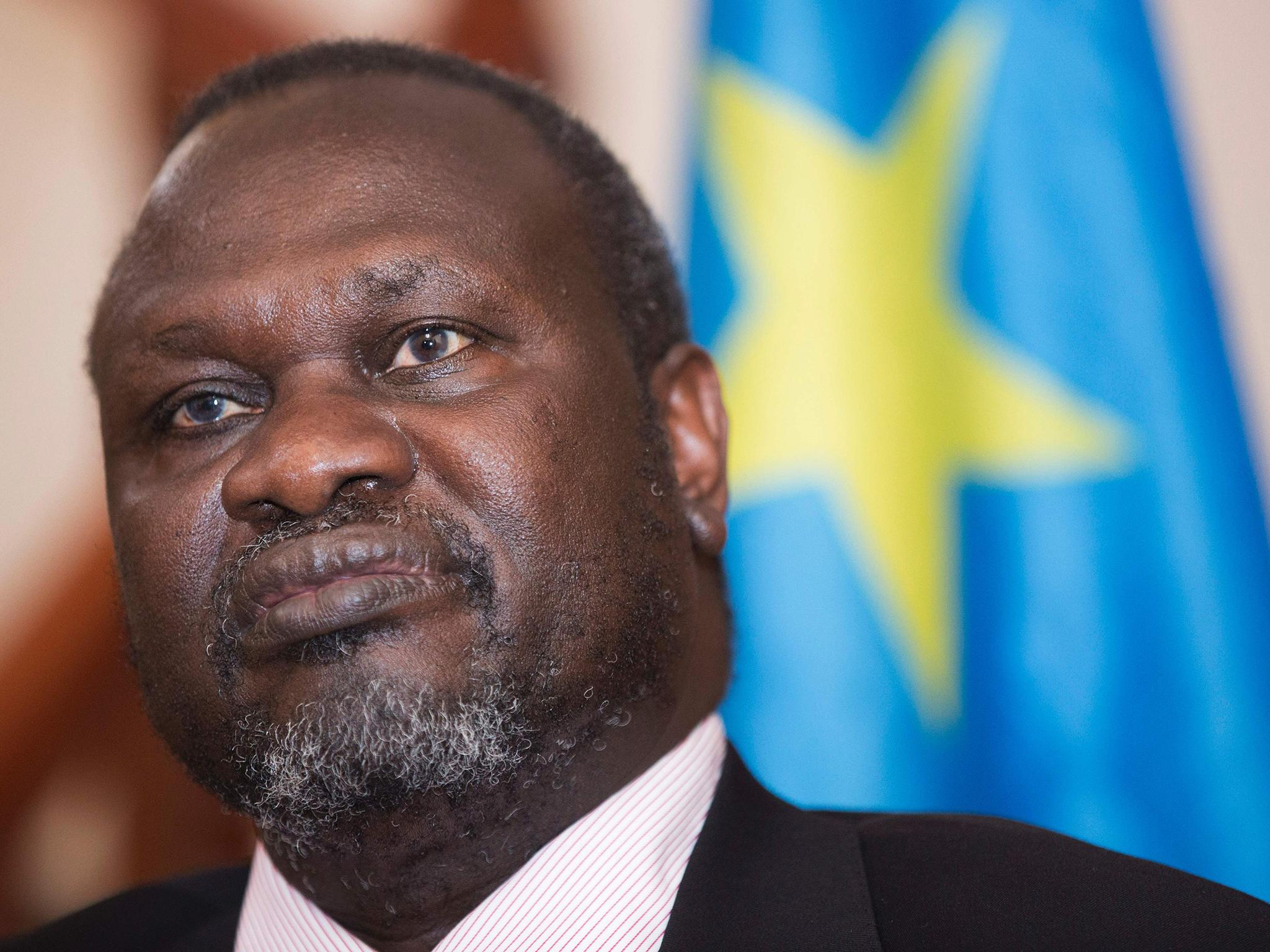South Sudan: Sacked vice president Riek Machar flees country amid violence
The UN is facing serious questions over its failure to protect foreign aid workers in Juba

Your support helps us to tell the story
From reproductive rights to climate change to Big Tech, The Independent is on the ground when the story is developing. Whether it's investigating the financials of Elon Musk's pro-Trump PAC or producing our latest documentary, 'The A Word', which shines a light on the American women fighting for reproductive rights, we know how important it is to parse out the facts from the messaging.
At such a critical moment in US history, we need reporters on the ground. Your donation allows us to keep sending journalists to speak to both sides of the story.
The Independent is trusted by Americans across the entire political spectrum. And unlike many other quality news outlets, we choose not to lock Americans out of our reporting and analysis with paywalls. We believe quality journalism should be available to everyone, paid for by those who can afford it.
Your support makes all the difference.South Sudan’s rebel leader and former Vice-President Riek Machar has fled the country following a breakdown in its fragile peace agreement that has seen hundreds of civilians killed.
Weeks of violence between forces loyal to Mr Machar and those of President Salva Kiir culminated in a vote last week by the UN Security Council to send 4,000 peacekeepers to the capital of Juba. Mr Machar has crossed the border into neighbouring Congo after weeks in hiding and, according to a posting by his spokesman on Facebook, a “botched attempt to assassinate” him.
He has been replaced in his absence as Vice-President, and said he would not return to Juba until a regional UN force had restored calm there. But the government has not accepted the force, saying that such a deployment would be a violation of South Sudan’s sovereignty without President Kiir’s approval.
The standoff raises questions about the ability of the UN to help diffuse the situation, and comes as the international body faces criticism over its failure to protect foreign aid workers in Juba.
The UN Secretary General, Ban Ki Moon, has launched an independent investigation into allegations that peacekeepers refused to respond to calls for help from civilians and foreigners as South Sudanese soldiers went on rampage on 11 July. The Associated Press reported that at a single compound popular with foreigners, soldiers were allowed to run riot for more than four hours despite advance warning being sent to at least three UN forces nearby.
Several witnesses told the AP that soldiers shot dead a local journalist while forcing the foreigners to watch, raped several foreign women, singled out Americans, beat and robbed people and carried out mock executions.
The UN chief “urges, once more, the government of South Sudan to investigate these human right violations and to prosecute those involved in these unspeakable acts of violence,” his spokesman said.
President Kiir said on Monday that his government was also investigating the attack on the compound. He suggested some elements of his army were out of his control, saying the military was not “completely subordinate to the authority of a civilian government”.
Army spokesman Lul Rai Koang said 19 soldiers had been arrested “because of crimes committed in July” and currently face military trial. He did not give further details.
Join our commenting forum
Join thought-provoking conversations, follow other Independent readers and see their replies
Comments